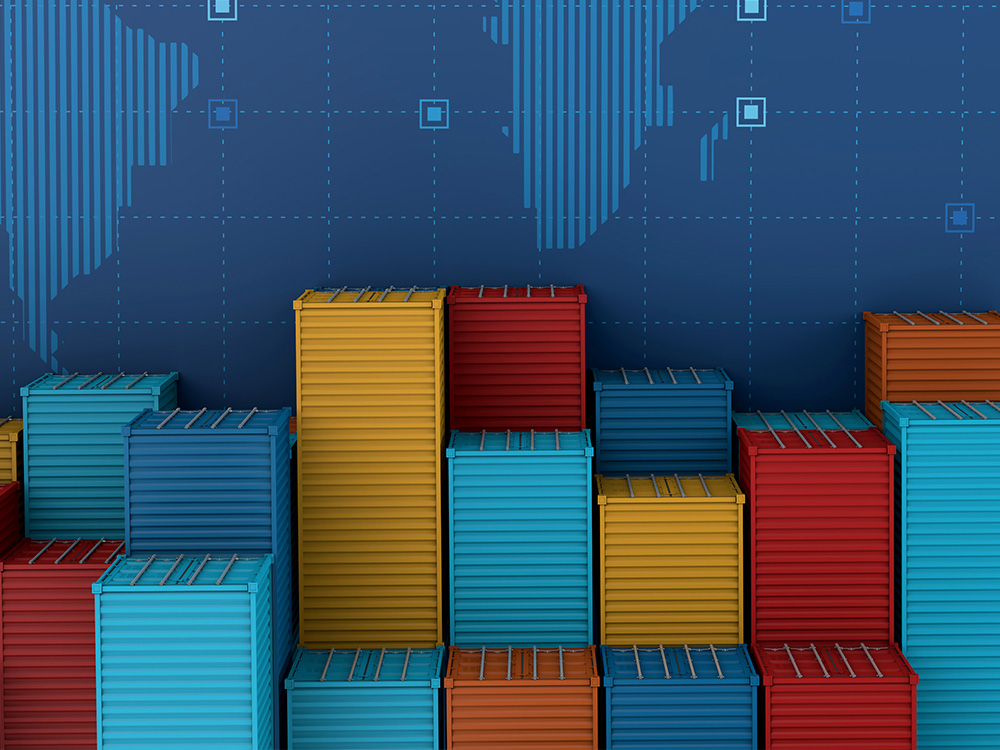Insights > Newsletters
Newsletters
International Trade and Customs Newsletter No. 06
August 30th, 2023

INTERNATIONAL TRADE AND CUSTOMS NEWSLETTER
The International Trade and Customs Newsletter aims to provide information about recent news, trends and government guidelines in Brazil and abroad in connection with international trade, market access, trade remedies, import tariffs and competitiveness. This material is intended for informational purposes and should not be used for decision-making. Specific legal advice can be provided by our lawyers.
Enjoy reading!
International Trade Team
SECEX considers resuming anti-dumping measures on PET films from Egypt
Circular Letter No. 23/2023, of the Brazilian Secretariat of Foreign Trade (“SECEX”), initiated an evaluation for resuming the collection of anti-dumping duties applied on Brazilian imports of Egyptian PET films, whose width range from 5 to 50 microns, commonly classified under the tariff codes 3920.62.19, 3920.62.91 and 3920.62.99 of the Mercosur Common Nomenclature (“NCM”). The measures had been suspended after the end of the last antidumping sunset review, through Resolution No. 203/2021, of the Executive Management Committee of the Brazilian Chamber of Foreign Trade (“GECEX”).
Statements from interested parties will be accepted provided that the applicable legal deadlines and legal procedures are fulfilled.
Brazil approves Mercosur’s public procurement protocol
On August 21, 2023, Legislative Decree No. 79/2023 was published, approving Mercosur’s Public Procurement Protocol (“Protocol”), approved by means of Decision No. 37/17, of the Common Market Council (CMC), executed in Brasília on December 21, 2017.
The Protocol under discussion provides for greater transparency of information as well as for better access conditions to the bloc’s government procurement market, estimated at USD 85.9 billion.
In addition to Brazil, Uruguay has also completed the procedures for the adoption of this protocol.
CONINV approves national program to improve Brazil’s investment environment
On July 06, 2023, the Brazilian National Investment Committee (“CONINV”) of the Brazilian Chamber of Foreign Trade (“CAMEX”) approved CONINV Resolution No. 1, which regulates the National Program for the Improvement of the Investment Environment, also known as Investe Mais Brasil, from 2023 to 2025.
The program encompasses several measures underpinned by the following pillars:
- Sustainability and responsibility, which aims to attract and support qualified, responsible and sustainable foreign investments;
- Investment facilitation, whose focus is to coordinate the policies put in place by the Brazilian Federal Government to make the investment environment more attractive, transparent and predictable; and
- Regulatory Improvement, which aims to support and encourage synergy across all members’ actions as well as to direct the Brazilian Federal Government’s efforts towards building a regulatory agenda for improving the investment environment.
The Executive Secretariat of the Chamber of Foreign Trade (“SE-CAMEX”) is the competent authority in charge of coordinating, monitoring and assessing the implementation of Investe Mais Brasil. For this reason, the SE-CAMEX must submit half-yearly reports on the implementation of the program to CONINV.
In addition, during the implementation of the program, the SE-CAMEX will be able to draft reports, information notes, draft regulations, public consultations, as well as arrange and participate in events, regardless of other measures deemed significant.
The results attained by Investe Mais Brasil will be disclosed on the institutional websites of the SE-CAMEX and the Direct Investment Ombudsman (“OID”).
European Council approves chip subsidy plan for semiconductor industry
On July 25, 2023, the European Council approved a regulation establishing a EUR 43 billion subsidy plan for the semiconductor industry in the European Union (“EU”), known as “European Chips Act”.
The plan proposed by the EU aims at:
- ensuring the conditions that are necessary for sustaining competitiveness and innovation within the EU; and
- improving the internal market functioning by creating a uniform legal regime to increase long-term resilience, in addition to the ability to innovate and ensure the security of EU supplies of semiconductor technologies. In addition, the EU plans to double its share in the global semiconductor market by 2030.
The measure adopted by the bloc is a response to the USD 52 billion package, approved by the United States (“US”), known as the “2022 American Chips and Science Act”, through subsidies for the semiconductor industry.
WTO circulates Panel report regarding Chinese duties on US products
On August 16, 2023, the World Trade Organization (“WTO”) Panel condemned the additional duties imposed by China on about 128 products from the United States.1 The measures, which included an increase from 15% to 25% in import tariffs, were a retaliation implemented by China after the United States had announced tariffs on imports of steel and aluminum products (Section 232 duties) – which had already been condemned by the WTO in 2022.
Some of the products affected by the Chinese measure are:
- fresh fruit and products made of nuts;
- wine;
- denatured ethyl alcohol;
- seamless steel tubes;
- meat of swine and its derivatives; and
- aluminum waste.
The WTO board concluded that additional tariffs imposed by China are inconsistent with international trade regulations given that less benefits are granted to the US, as compared to other countries, in addition to exceeding the tariff limits provided for in China’s agreements signed before the WTO.
China can appeal such decision before the Appellate Body of WTO’s Dispute Settlement System, which remains inoperative.
[1] Available at: https://www.wto.org/english/tratop_e/dispu_e/558r_e.pdf. Accessed: August 18, 2023.
Related Areas














